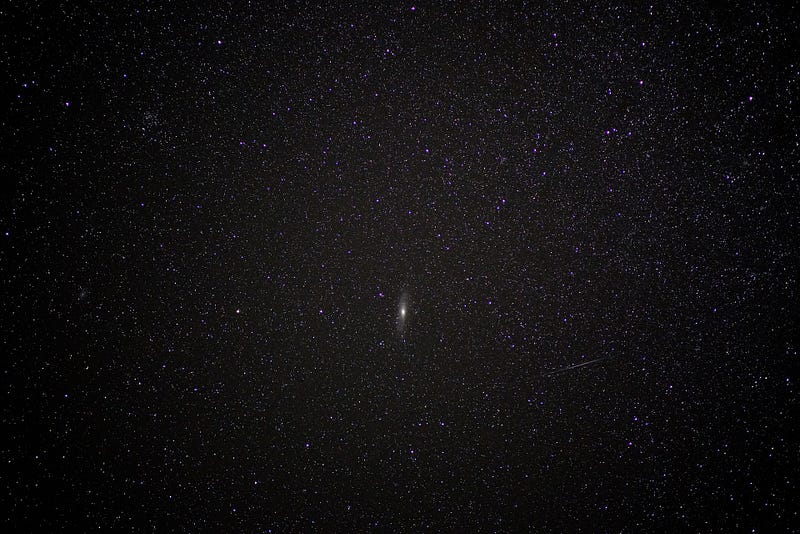Exploring Existence: A Journey Through the Cosmos
Written on
Chapter 1: The Nature of Existence
Recently, a conversation sparked between my oldest son and me while discussing the upcoming eclipse. Our thoughts drifted toward the cosmos, leading to numerous inquiries and few definitive answers. We began to speculate on some profound questions.
Are we alone as intelligent beings in this vast universe? I entertain the notion that we might be. The enormity of the cosmos suggests, statistically, that at least a few habitable planets exist. Yet, I ponder whether the emergence of intelligent life, as we know it on Earth, might be a singular event. My son, however, disagrees. He argues that if we are indeed the only intelligent beings, it could render our existence somewhat futile, especially considering that once humanity ceases to exist—an inevitability—there will be a void in the universe regarding intelligent life, making our achievements seem inconsequential.
Will humanity ever achieve interstellar travel? While I have faith in our species' potential to explore unimaginable realms, I remain doubtful about this particular aspiration. It's easy to envision a civilization five hundred thousand years into the future, advanced in ways we cannot yet conceive, but still unable to traverse interstellar distances. The sheer scale of space is daunting. Moreover, when we discuss interstellar travel, we often think of locating other habitable worlds or civilizations. Even if we were to reach a planet near Alpha Centauri, the closest star system, the probability of it being suitable for life is akin to winning a lottery. The journey would not end there, as we would need to venture to another galaxy—an entirely different universe away. I admit I might harbor biases that hinder my open-mindedness: I doubt humanity will discover radically new methods of space travel.
If we were to uncover microscopic life forms on distant planets, or perhaps even more complex organisms like fish, would this reshape our understanding of the universe and our place within it? It would undoubtedly be a groundbreaking revelation. However, I question whether our self-awareness would genuinely evolve as a result. For instance, should we find a simple single-cell organism in Europa’s subsurface ocean—a moon of Jupiter—I doubt it would fundamentally alter our worldview.
What existed before the Big Bang? This question plunges us into territory that is almost beyond comprehension. Attempting to grasp the concept of timeless nothingness or non-existence can be disorienting. One might start searching or debating this topic, only to find their thoughts faltering when faced with the challenge of conceptualizing nothingness. It’s an exercise in futility; nothingness cannot be visualized. It lacks space, observers, or even an "it" because, by definition, it does not exist. The total absence of existence is impossible to conceive or articulate once one experiences being.
In addition, such inquiries lead us to explore spiritual dimensions—questions about God and the afterlife. When contemplating the immense timeline of the universe, which spans billions of years, it becomes intellectually challenging to reconcile ancient narratives with our current understanding. The idea of an afterlife may stem from our fears and self-centeredness rather than empirical truths. Science does not hold all the answers, but acknowledging our smallness in the grand scheme of things can be a liberating realization. While comprehending nothingness remains elusive, we can still endeavor to explore its implications.

Chapter 2: The Quest for Answers
This video titled "Why Do We Exist?" delves into the philosophical inquiries surrounding our purpose in the universe, exploring various perspectives and thoughts on existence.
The second video, "Why Do Things Exist?" tackles similar themes, questioning the essence of existence and how it shapes our understanding of reality.